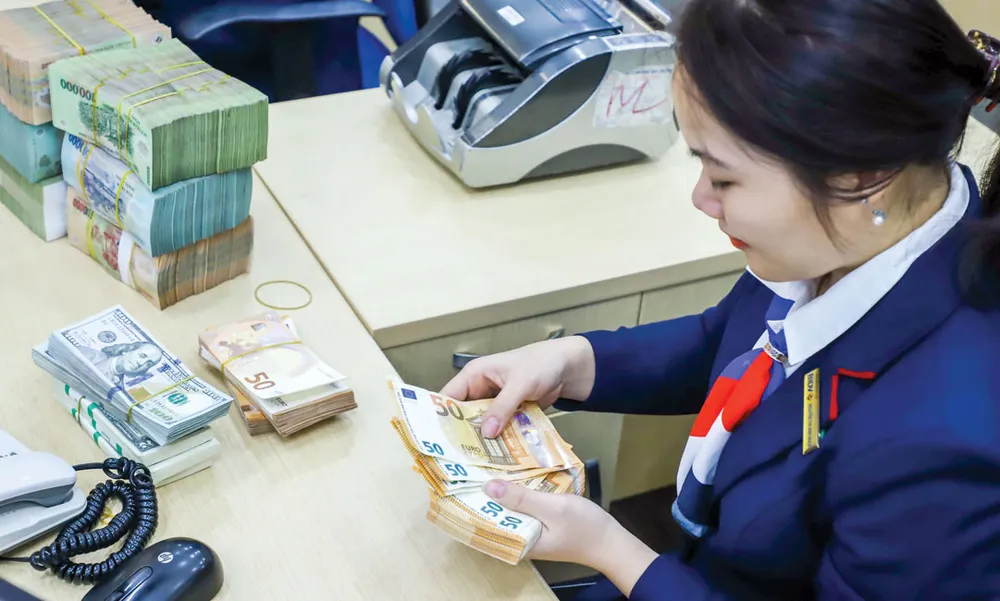
With the current fall in Foreign Direct Investment in Vietnam due to the ongoing Covid-19 pandemic, these remittances are being seen as an alternative to other foreign investments.
Resources erode when GDP grows
Ever since the System of National Accounts (SNA) was introduced in Vietnam under Government Decision 183, it seems that only the Gross Domestic Product (GDP) has been evaluated and agency reports and surveys only mention and analyse the GDP of Vietnam.
GDP is actually an indicator of the Gross National Income (GNI), the National Disposable Income (NDI), income from movable or immovable property, net ownership payments, remittances, and savings. The resource of the economy is an indicator of savings, and is the basic resource for reinvestment. Savings are equal to NDI minus final consumption, and if savings are insufficient then the state has to borrow. The General Statistics Office of Vietnam has long been publishing GDP indicators as well as data on GNI and net ownership payments. This data dates back to 1990, but no one seems to see these important indicators in analysing the real picture of the economy.
According to the Statistical Yearbook, the ratio between GNI and GDP is increasingly widening. If in 2009 the ratio of GNI and GDP was 97%, by 2019 it could be 94%. This shows that more and more money is flowing abroad through ownership expenditure. Net ownership payment growth for the period 2009 to 2019 at current price is 3.5 times, while GDP growth at current price over this period is 3.3 times. Thus, it can be seen that money flowing abroad increased faster than GDP growth.
In 2019, according to preliminary data of the General Statistics Office, net ownership payout was about USD 15.2 bn. Calculations based on State Bank of Vietnam data, ownership payment is USD 17.4 bn and income from ownership is at USD 2.2 bn. This means that out of USD 17.4 bn of ownership payment, there is about USD 15.2 bn in money transferred by Foreign Direct Investment (FDI) from profits.
Ironically, GDP growth is dependent on the FDI sector. This shows the paradox that the more GDP grows, the more resources are eroded in the economy. According to the Statistical Yearbook, value added from the FDI sector is about USD 52 bn, about 20% of GDP, which is about 35% surplus amounting to USD 18 bn. This means that nearly 85% of profit from the FDI sector is transferred to home country.
Remittances result of hard toil
The real indicator of the economy is that NDI is equal to GNI, plus current transfer revenue, minus current transfer expense. The most important indicator reflecting the resources in the economy is savings in NDI minus final consumption. Thus, if the resources saved plus the net capital transfer are smaller than the investment, they must borrow to compensate for the deficit. However, in many cases the amount of savings is equivalent or even greater than the investment but there is still need to borrow. This happens in the case when although it is saved but is still in the form of currency, such as storing USD or gold in the house, or not going into production.
All these examples show that remittances are considered one of the most important resources to support Vietnam's economy. The supply of foreign currency via remittances has contributed to improving the overall balance of payments in the economy, as well as helping reduce dependency on foreign capital. In Vietnam, remittances make up a large part of current transfers. It is estimated that the amount of remittances to Vietnam in 2019 were about USD 17 bn. This is an important amount to help offset the loss caused by remittances from the FDI sector. Vietnam may have to borrow more and even default if the present amount of remittances face shortfall.
Nonetheless, the Vietnamese diaspora has officially or unofficially made a very important contribution to the country's economy. Overseas workers send their remittances earned by sweat and blood to their homeland. In many cases, Vietnamese workers have difficulty accessing their right in their workplace. Many are buried under huge debts due to high labor migration fees which cause a burden on workers seeking to work abroad and in their workplace they remain exploited for long durations of time. Hence the money they send back home comes from hard work and a lot of pain.
It is estimated that about 20% of remittances are received annually from Vietnamese diaspora working overseas. According to the International Labour Organization (ILO), while working abroad may have many benefits for both individual worker and the host country, migrant workers still face risk of exploitation. This situation is partly due to high costs of labor migration and challenges in implementing measures to protect worker rights abroad.




















